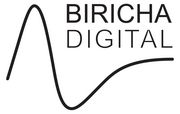Feel free to download the symposium flyer.
3rd Power Analysis & Design Symposium 2014
The 3rd Power Analysis & Design Symposium took place on May 15th 2014 in Eching near Munich (Germany).
by Steven M. Sandler (Picotest)
Learn about measurement philosophy, test equipment requirements, and simple measurement techniques for obtaining high fidelity measurements. This session addresses the benefits of non-invasive, in-system measurements and the use of indirect measurements to identify, assess and troubleshoot system level problems. While the session includes all system related measurements and domains, you will learn why the frequency domain is generally preferred and how to get the best fidelity when measuring in the time domain.
by Dr. Ali Shirsavar (Biricha Digital Power)
In this session, Dr. Shirsavar will explain how to design a stable opto-isolated control loop for an isolated power supply. The techniques taught are applicable to both analog and digital power supplies. In particular, the frequency response of the opto-isolator and its impact on the power supply’s control loop will be studied.The session will conclude with a real-life measurement of an opto-isolator within a power supply using aBode 100 VNA.
by U. Schwalbe, M. Schilling, T. Reimann (TU Ilmenau)
Many currently used research concepts deal with the control loop design of special converter topologies or special control structures. Therefore, power electronic design engineers, it is difficult to find a good design methodology and achieve an optimized controller design quickly. The authors present the development of a simple model-based design methodology for DC/DC converters using the Simulation Program with Integrated Circuit Emphasis (SPICE). Frequency and time domain simulation models will be used for an efficient loop design. In addition, a short practical control loop design guide using the SPICE simulation tool and the vector network analyzer Bode 100 is presented. The complete control loop design will be shown on a fly-back converter prototype.
by Ralf Negele (Negal Engineering)
A working EMC filter is one of the key requirements to ensure stable operation of power supplies. Classical design approaches work either with ideal components or SPICE models. In this lecture, a new method is introduced that takes into consideration the real-life characteristics of the actually used components right from the beginning.
by Markus Schubert (Würth Elektronik)
To ensure the proper functioning of a power supply in the field, the selection of the correct power inductor is essential. In this lecture, it is shown how important it is to consider the core material, the switching frequency as well as inductor currents and losses during design process and component selection.
by Pablo Yelamos (Infineon)
The growing demand in terms of conversion efficiency and time to market has led the power control world to adopt digital control techniques. Not only a digital control technique offers better flexibility in terms of adaption to newly created topologies, but will also offer a better efficiency over different operating conditions, such as temperature and fabrication process. We will demonstrate how the XMC4000 microcontroller together with a powerful ARM® Cortex™-M4 processor can be used to control a 5 MHz high switching frequency buck converter – taking advantages of the 150 picosecond PWM resolution – and give examples of how the resources can be arranged to address several other power conversion topologies.
by Andy Reiter (Microchip Technology)
Early DSP-based power converters were mostly used to “imitate” proven analog compensation filters in combination with programmability and design flexibility. With increasing acceptance and experience in various applications and markets, digital control has entered an entirely new level of non-linear control. Over the years adaptive and predictive control methods have been developed to increase efficiency, performance and reliability simultaneously. This lecture introduces the concept of basic non-linear control concepts and focuses on verification methods for Adaptive Gain Control (AGC).







